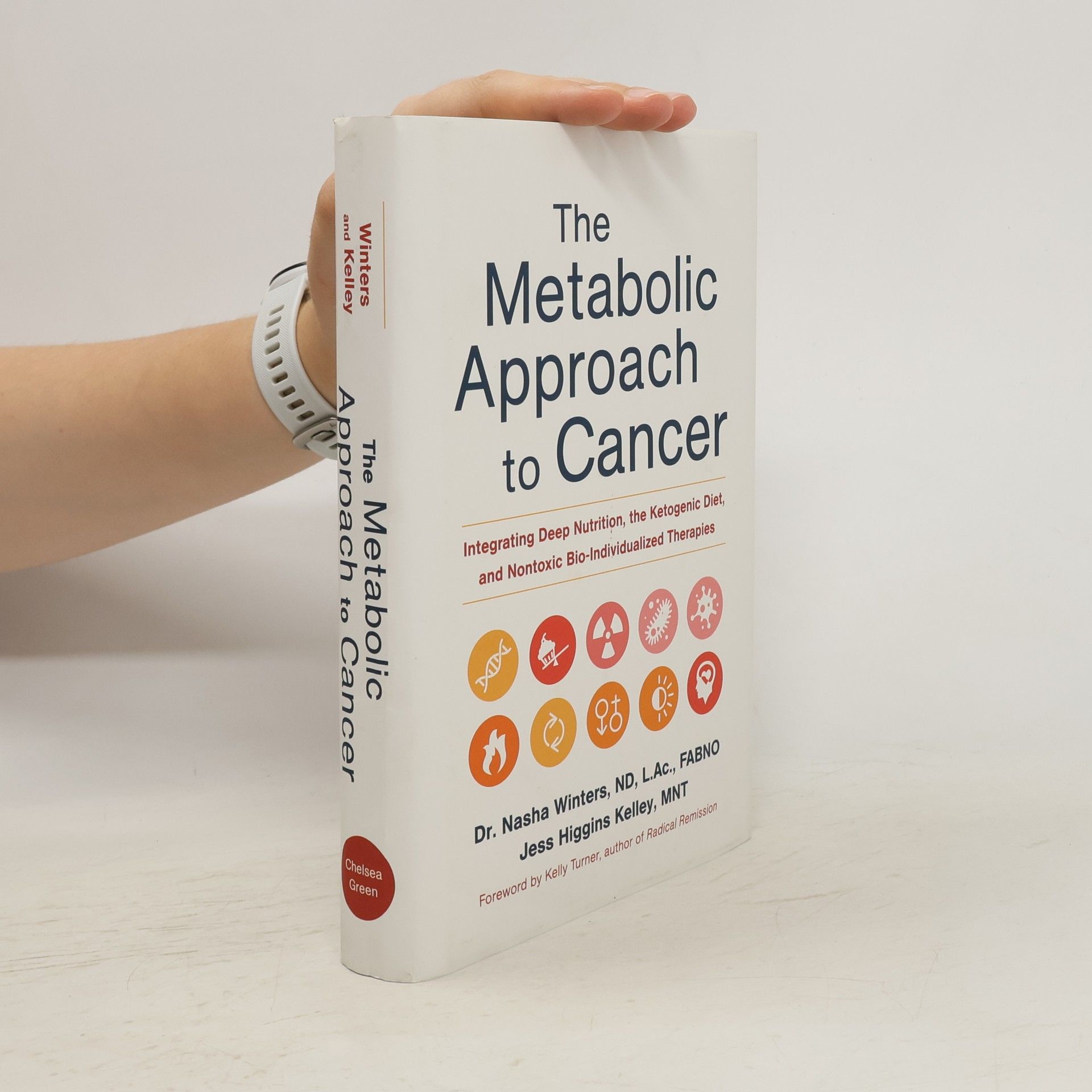Mistletoe therapy is becoming more recognised as a viable treatment for cancer. The mistletoe plant contains several compounds including lectins which improve immune defences and can decrease the negative effects of cancer treatments. As a therapy, mistletoe represents a rediscovery of ancient wisdom and shows us how the science of modern medicine might expand its reach and reconnect with a more human-centred medicine. This book condenses the information shared at a three-day practitioner training course hosted by the Physicians' Association for Anthroposophic Medicine, highlighting several key lectures. This book serves as a bridge between conventional oncology and the development of Integrative Medicine as an effective path in the treatment of cancer. This book is a valuable resource for medical practitioners who want to expand cancer treatment options for their patients, as well as informative background reading for anyone interested in alternative medicine.
Nasha Winters Book order (chronological)




Animals Eat Each Other
- 151 pages
- 6 hours of reading
A young woman embarks on a fraught three-way relationship and begins to recognise the dark undertow of obsession and jealousy that her presence has created between Matt and Frances, and finds herself balancing on a knife's edge between pain and pleasure, the promise of the future and the crushing isolation of the present.
Bioregulatory Medicine
- 240 pages
- 9 hours of reading
Over half of the global population suffers from chronic or degenerative illnesses such as heart disease, autoimmune disorders, diabetes, and cancer. The conventional model of treating symptoms with pharmaceuticals is losing appeal as patients seek effective, non-toxic healing methods. Bioregulatory Medicine presents a proven approach, widely practiced in progressive countries like Switzerland and Germany. This holistic model recognizes the body's various bioregulating systems—cardiovascular, digestive, neurological, and more—and emphasizes natural healing methods to restore the body's self-regulating and self-healing capabilities. Rather than merely addressing symptoms, it focuses on uncovering the root causes of diseases, considering the individual from genetic, epigenetic, metabolic, energetic, and emotional perspectives. Each patient's experience of illness is unique, necessitating personalized treatment and prevention strategies. Bioregulatory Medicine encompasses four health pillars: drainage and detox, diet, mind-body medicine, and oral health, integrating the best of natural medicine with modern technology. It prioritizes disease prevention and early intervention through noninvasive diagnostics and treatments, utilizing over 100 non-toxic methods from around the globe. This resource is invaluable for forward-thinking patients and practitioners aiming to enhance their understanding of the body's innate healing abilities.
The Metabolic Approach to Cancer
- 377 pages
- 14 hours of reading
Since the early twentieth century, cancer rates have surged, now affecting nearly 50 percent of the American population. Conventional treatments like chemotherapy, surgery, and radiation continue to dominate, despite research indicating that 95 percent of cancer cases are linked to diet and lifestyle. This innovative, metabolic-focused nutrition protocol provides a solution. Naturopathic oncologist and cancer survivor Dr. Nasha Winters, alongside nutrition therapist Jess Higgins Kelley, identifies ten key elements of a person's "terrain," essential for preventing and managing cancer. These elements—epigenetics, the microbiome, the immune system, toxin exposures, and blood sugar balance—are explored in relation to cancer, accompanied by a researched, non-toxic nutrition prescription. The metabolic theory, introduced by Nobel laureate Otto Warburg in 1931, posits that cancer thrives on high carbohydrate diets rather than "bad" genetics. This theory is gaining traction due to evidence showing improved outcomes when cancer cells are deprived of glucose. Central to this approach is the ketogenic diet, which utilizes ketones as fuel. Winters and Kelley also highlight the anticancer potential of phytonutrients from low-glycemic foods. Their optimized diet excludes grains, legumes, sugar, and synthetic ingredients, focusing instead on whole, organic, and fermented foods. Additionally, they incorporate harm-reductive herbal therapies a